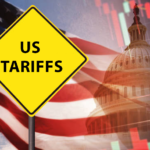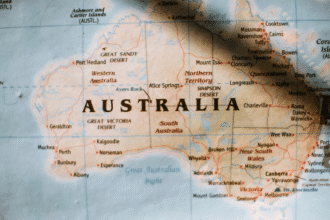Prime Minister Albanese restated a major pledge he made three years ago when he declared the approaching election on May 3: “No one held back, and no one left behind.” Albanese said, “This statement will define my government.” When he assumed office in 2022, following the very unpopular reign of Scott Morrison, the sentiment connected strongly. Many Australians yearned for a clean start, away from the political unrest and national issues that had dogged the last government.
- In what ways has Anthony Albanese's background affected his political path?
- What were the main office policy moves taken by Albanese?
- Under Albanese's leadership, what are the main problems Australia faces?
- Was Albanese's leadership set back by the Voice Referendum?
- What are the chances for Albanese in the forthcoming election?
But following three years of global economic crisis, heated national debates, and mounting discontent with his government, Albanese now stands to be the first Australian prime minister in almost a century to serve only one term. The issue remains: Has he done enough to fulfill his promise as voters make their way to the polls later this month?
In what ways has Anthony Albanese's background affected his political path?
Albanese’s modest background—born and raised in social housing by a single mother on a disability pension—has greatly influenced his political philosophy. Often talking about his background, he stresses how it inspired his ambition to run for office. Learning in his adolescent years that his father, whom he thought had died before he was born, was alive, Albanese’s narrative is one of tenacity. Following decades of uncertainty, Albanese located his father and made his first-ever trip to Italy. His perspective on personal accountability, connection, and social justice was shaped in part by this moving event in his life.
Growing up in a working-class household in an area with little possibilities, Albanese witnessed personally the hardships many Australians endured. Working nonstop to support him, his mother developed into a major influence in his life. He frequently attributes his moral qualities of compassion, justice, and diligence—hard work—to her. His political career clearly shows these principles since he has supported programs meant to make life better for common Australians.
Having been a devoted Labor Party member since his twenties, he was chosen to represent an inner-city Sydney seat in 1996 on his 33rd birthday. An important turning point in Albanese’s life and career, his election to parliament signaled the start of a path he would follow to become among Australia’s longest-serving MPs. Rising steadily inside the Labor Party, he soon gained recognition for his passion for social justice and his will to better the lot of common Australians.
What were the main office policy moves taken by Albanese?
Albanese started quickly implementing important policy measures meant to raise Australia’s profile on the international scene and handle internal issues upon assuming office in 2022. Strengthening Australia’s emissions lowering initiatives came first for him. Albanese was resolved to improve on the country’s lack of action on climate change, which had been much attacked. His government adopted a quasi-carbon cap for the biggest polluters and quickly implemented regulations to improve the goal of emissions reduction for the nation. Though many detractors contend that more radical action is required, these actions were considered a major step toward reaching global climate targets.
Environmentalists were concerned since Albanese’s government approved oil and gas projects despite these encouraging actions on climate change. Critics contended that although the administration was moving in the right direction, its ongoing support of fossil fuel projects compromised its credibility on climate change. Still, Albanese has defended his strategy, saying that to guarantee Australia’s energy security as we move toward a greener future, a mixed approach to energy policy is required.
Particularly with China, Albanese also aimed to mend Australia’s foreign policy. Under the former government, relations between the two nations had dropped dramatically; a trade conflict resulted in tariffs being applied to Australian goods. Negotiating the abolition of these levies and guaranteeing the first high-level meetings between the two countries in years, Albania’s government made great effort to heal these relations. Given that China is among Australia’s main trading partners, this was considered a major diplomatic success. After his predecessor’s contentious submarine agreement was shelved, Albanese also worked to mend Australia’s ties to other important foreign allies, including France.
Domestically, Albanese concentrated on Australia’s developing housing crisis. Driven in part by cheap borrowing rates and underinvestment in social housing, the nation has seen a dramatic increase in property prices. In response, Albanese’s government enacted policies meant to enable low- to moderate-income people to rent more reasonably and buy properties. Aiming at a major relief for the housing problem, the government also promised to build 1.2 million homes over the following five years. Many people praised these ideas, but detractors contend that more radical changes are required since they do not sufficiently solve the underlying causes of the issue.
Under Albanese's leadership, what are the main problems Australia faces?
Under Albanese’s direction, one of the main problems Australia faces is its continuous economic woes. Australia is almost in recession and has had worst economic growth since the 1990s. Given the dramatically growing prices of daily necessities, inflation has been a main worry. Many Australians still feel under pressure from the growing cost of living even with government relief efforts including tax cuts, energy rebates, and rental aid.
The government of Albania has come under fire for not acting to address the crisis in cost of living. Many Australians are still having financial difficulties even if some policies have been implemented. With record-high house prices, little investment in social housing, and a general dearth of homes making it challenging for many Australians to find a place to live, housing affordability remains a big issue. Though critics contend that more forceful action is required, Albanese has initiated initiatives meant to solve these problems.
On the international front, the Albanese government has also struggled, especially in connection to the Israel-Gaza conflict. The Australian government first fervently supported Israel’s right to defend itself, but as the death toll in Gaza grew, Albanese turned to advocate a ceasefire and stress the importance of a peaceful settlement. Both sides criticized this change of posture. While pro-Palestinian demonstrators said he had reverted on his prior support for Palestinian statehood, conservatives charged he had abandoned Israel.
Was Albanese's leadership set back by the Voice Referendum?
The Voice referendum’s October 2023 loss was maybe the biggest blow to Albanese’s leadership. The referendum aimed to create a legislative advisory committee for Aboriginal and Torres Strait Islanders and acknowledge them in Australia’s constitution. After months of acrimonious national debate, the vote was overwhelmingly turned down even though at first support was great.
Albanese paid a huge personal price for his support of the referendum. His government actively supported the proposition even though it did not spearhead the Yes campaign. Many saw the referendum’s rejection as evidence of the government’s incapacity to transmit its message. The Yes campaign specifically battled to get people more focused on cost-of-living problems. Opponents condemned Albanese for embarking on what they saw as a contentious and expensive referendum.
What are the chances for Albanese in the forthcoming election?
Albanese’s approval ratings, which had reached rock bottom earlier in the year, have shown indications of recovery as the election draws near. Still, polls imply that keeping office will present a tough task for him. Opposing leader Peter Dutton has grabbed on the government’s financial woes, claiming that the Albanese government has diverted itself with its agenda while Australians still suffer from growing living expenses.
Conversely, Albanese argues that his government has the best vision for Australia’s future and has protected the nation from the worst of global economic problems. He presented the approaching election as a clear choice between Dutton’s commitment to “cut” and his own “keep building” approach.
Declaring the election, Albanese said, “Your vote has never been more important, and your choice has never been more clear.”
Now the country waits for the outcome of an election that will decide if Australians think the Albanese government has lived up to expectations.








